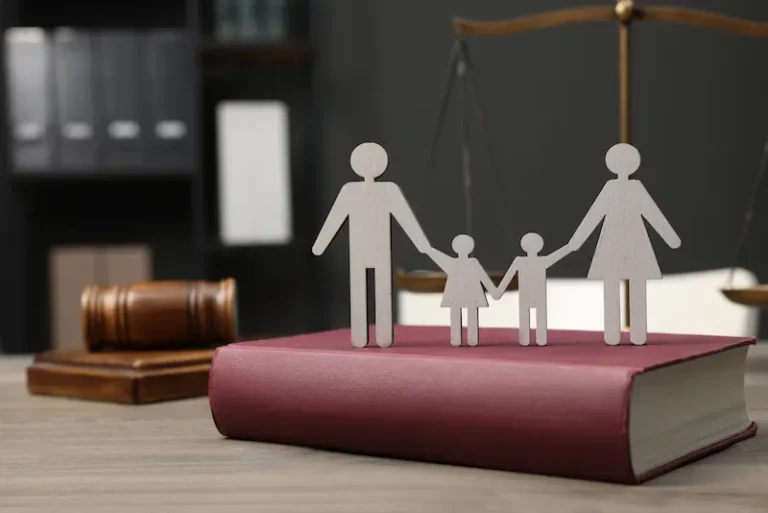Wondering How Alimony Fits Into Your Divorce?
Divorce is often a difficult and emotional journey. When couples can reach a mutual agreement through uncontested divorce, it provides a less stressful, more efficient way to part ways. However, one critical topic that requires careful consideration is alimony (spousal support). If you’re wondering how it fits into this process, we’re here to help you understand your rights and options. Let’s explore everything you need to know about uncontested divorce and alimony in Georgia — how spousal support is determined, negotiated, and formalized, so that you can feel confident moving forward with your life.
What Is an Uncontested Divorce in Georgia?
An uncontested divorce occurs when both spouses agree on all major issues, including property division, child custody, support, and alimony. This means fewer court appearances, reduced legal fees, and a much faster resolution compared to contested divorces, which can be lengthy and adversarial.
In Georgia, uncontested divorces allow couples to maintain control over their divorce terms rather than leaving decisions up to a judge. This control is especially important when addressing sensitive matters like alimony, where a fair and mutually acceptable agreement can offer both parties peace of mind.
Understanding Alimony in Georgia: What You Should Know
Alimony is a financial obligation that one spouse may be required to pay to the other after divorce. Georgia law recognizes several types of alimony.
-
Temporary Alimony: Support provided during the divorce process.
-
Rehabilitative Alimony: Support for a limited period to allow the recipient to gain education or training.
-
Permanent Alimony: Ongoing support, usually in long-term marriages.
-
Lump-Sum Alimony: A one-time payment instead of ongoing support.
Georgia courts consider multiple factors before awarding alimony, such as:
-
The length of the marriage.
-
The financial resources and earning abilities of both spouses.
-
The standard of living during the marriage.
-
Contributions to the marriage, including homemaking.
-
Age and health of both parties.
-
Any marital misconduct that affects economic status.
Knowing these factors can empower spouses during negotiation, especially in an uncontested divorce setting where cooperation is key.
How Is Alimony Handled in an Uncontested Divorce?
When couples file for an uncontested divorce in Georgia, the question of alimony is often settled privately through negotiation rather than court orders. This means spouses agree on the amount, duration, and terms of support — often with the help of legal counsel or mediation. Clear communication and mutual respect can make negotiating alimony much smoother.
Once agreed upon, these terms become part of the divorce settlement and are incorporated into the final divorce decree. This formalizes the arrangement and makes it enforceable by law.
It’s also possible for spouses to waive alimony entirely, which is common in uncontested divorces where both parties are financially independent or have equitable property settlements.
Calculating Alimony: What You Need to Understand
Unlike child support, Georgia does not have a strict formula for calculating alimony. Instead, the courts — and couples negotiating their own agreements — consider a broad range of financial and personal circumstances.
Key elements influencing alimony decisions include:
-
Income and earning capacity of both spouses.
-
Length and quality of the marriage.
-
Contributions made by each spouse, including nonfinancial ones like child-rearing.
-
The ability of the paying spouse to provide support without undue hardship.
In an uncontested divorce, couples often work with attorneys or financial advisors to determine an amount that is fair and sustainable, avoiding future conflicts.
Uncontested Divorce and Alimony: Requesting Modifications
Life is unpredictable. After an uncontested divorce, circumstances may change, necessitating a modification of alimony terms.
Modifications may be requested if:
-
There is a significant change in either spouse’s income.
-
One spouse remarries.
-
Health issues arise that affect financial needs or the ability to pay.
-
Other substantial life changes affect support arrangements.
To modify alimony in Georgia, the requesting party must petition the court and prove a substantial change in circumstances. Courts generally encourage spouses to outline conditions for modification in their original agreements, streamlining future adjustments.
Tips for Navigating Uncontested Divorce and Alimony
-
Be Transparent About Finances
Honest disclosure of income, assets, and expenses ensures fair negotiations and reduces the risk of future disputes. -
Seek Professional Guidance
Consulting a divorce attorney or financial planner familiar with Georgia law can provide valuable insight and help craft agreements that meet legal standards. -
Consider Long-Term Implications
Evaluate how alimony arrangements affect your future finances, retirement plans, and lifestyle. -
Document Agreements Clearly
Ensure all terms, including amounts and duration of alimony, are written into the divorce decree to provide legal clarity.
When to Consult a Lawyer About Uncontested Divorce and Alimony
While uncontested divorces are typically straightforward, alimony issues can be complex. Situations warranting legal advice include:
-
Disagreements about the amount or duration of support.
-
Unclear financial disclosures.
-
Significant disparities in income or assets.
-
Planning for future modifications.
At Flat-Fee Uncontested Divorce Lawyers, we provide affordable, expert counsel to help Georgia couples handle alimony matters efficiently and compassionately.
Let Us Help You Get Alimony Right
If you’re considering a separation from your partner, it’s important to understand the process behind an uncontested divorce and alimony. Negotiating fair spousal support protects both parties’ financial well-being and paves the way for a peaceful transition. Contact us today to learn more about how we can help.




